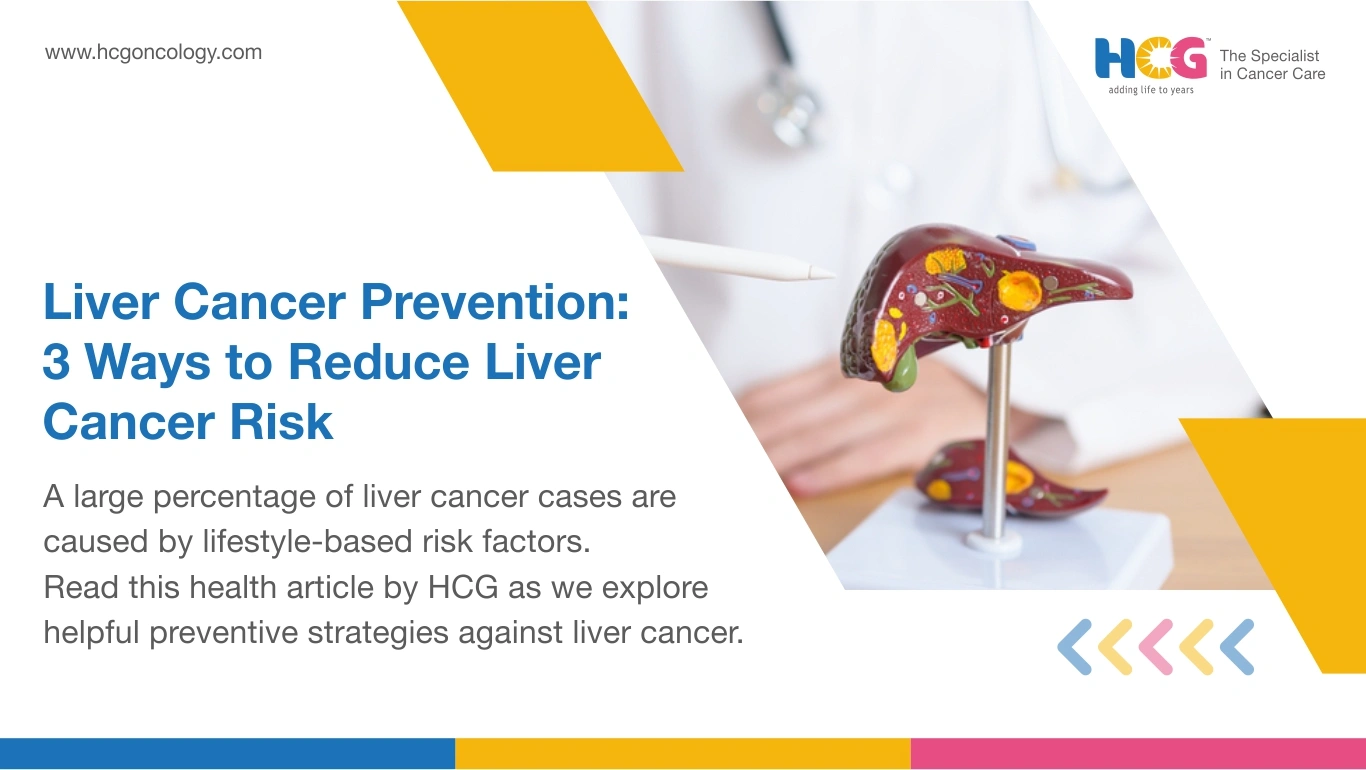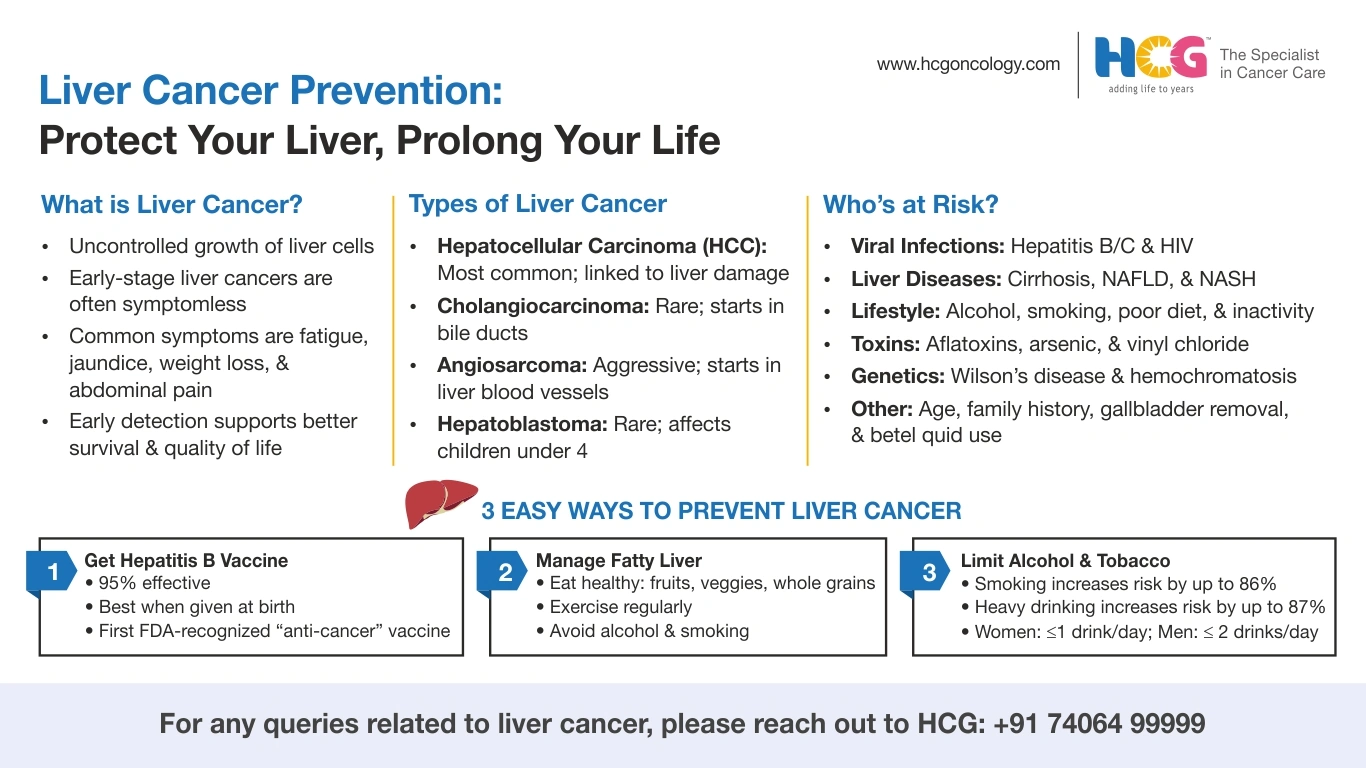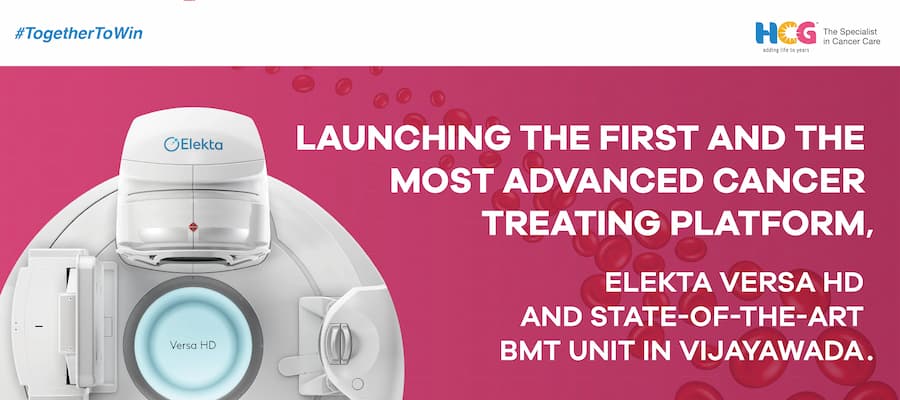
07 Nov, 2025
Feel free to reach out to us.

07 Nov, 2025

This article is medically reviewed by Dr. Krunal Khobragade, Senior Consultant Surgical Oncology, HCG Cancer Centre, Nagpur.
Liver cancer is characterized by the uncontrollable growth of liver cells.
The early stages of liver cancer do not have noticeable symptoms.
However, patients experience several symptoms, such as loss of appetite, weight loss, fatigue, nausea, upper abdominal pain, jaundice, pale stools, abdominal swelling, and loss of appetite, as the disease progresses.
The severity of liver cancer depends on several factors, such as location, size, metastatic status, and overall health of the patient.
The treatment is based on these factors. Detecting the disease early improves the overall quality of life and survival. It is essential to be aware of the signs and symptoms of liver cancer and not to ignore them.

Based on the starting location of the cancer, liver cancer may be primary (that starts in the liver) or secondary (that spreads to the liver from another organ).
The following are the different types of primary liver cancer:
Anyone can get diagnosed with liver cancer. However, patients with certain factors have an increased risk of liver cancer. These factors include:
It is important to understand what can be done to prevent liver cancer. The following are some of the effective liver cancer prevention tips:
As hepatitis B is a significant cause of liver cancer, getting vaccinated reduces the risk of liver cancer.
When taken as scheduled, the vaccine is 95% effective. The vaccine significantly reduces the risk of liver cancer if given at birth, especially in newborns.
Because of its efficacy in lowering liver cancer risk, the U.S. FDA recognized it as the first "anti-cancer" vaccine.
Addressing fatty liver or excess fat accumulation in the liver can lower the risk of liver cancer.
Nonalcoholic fatty liver disease is caused by fat buildup in the liver and increases the risk of liver cancer.
It can be managed through losing weight, eating a diet rich in fruits, vegetables, and whole grains, exercising regularly, and avoiding alcohol and smoking.
Avoiding alcohol consumption and tobacco significantly lowers the risk of liver cancer and helps in liver cancer prevention. Evidence suggests an ≤86% increase in liver cancer risk with smoking and an ≤87% increase with heavy alcohol use.
Further, even moderate alcohol use in people with underlying conditions, such as diabetes, increases liver cancer risk. Thus, it is advised that women have no more than one drink a day and men have no more than two.
Individuals often ask about how to avoid liver cancer. Liver cancer is a serious condition, especially if it remains undiagnosed at an early stage.
Risk factors for liver cancer are hepatitis infections, fatty liver, and alcohol and tobacco use. Understanding risk factors and following liver cancer prevention measures can help reduce the risk of liver cancer.
As a leading cancer hospital in India, we, at HCG Cancer Centre, offer comprehensive liver cancer care, starting from screening and diagnosis to treatment and follow-up care after the treatment.

Dr. Krunal Khobragade
Consultant - Surgical Oncology
MBBS, MS (General Surgery), MCh (Surgical Oncology)
Dr. Krunal Khobragade, a specialist cancer surgeon in Nagpur, offers advanced cancer diagnosis and treatment with expertise in GI cancer, gynecological cancer, esophageal, gastric, colon, rectal, ovarian, breast, robotic surgery, HIPEC, and urological cancers. He is available for consultations at HCG Cancer Centre, a well-known cancer hospital in Nagpur. With over 15 years of experience and global training, he uses the latest technology for robotic and laparoscopic surgeries. As a leading surgical oncologist in Nagpur, he provides personalized care, faster recovery, minimal scars, and expert cancer management.
Appointment Link: Book an Appointment with Dr. Krunal Khobragade.
